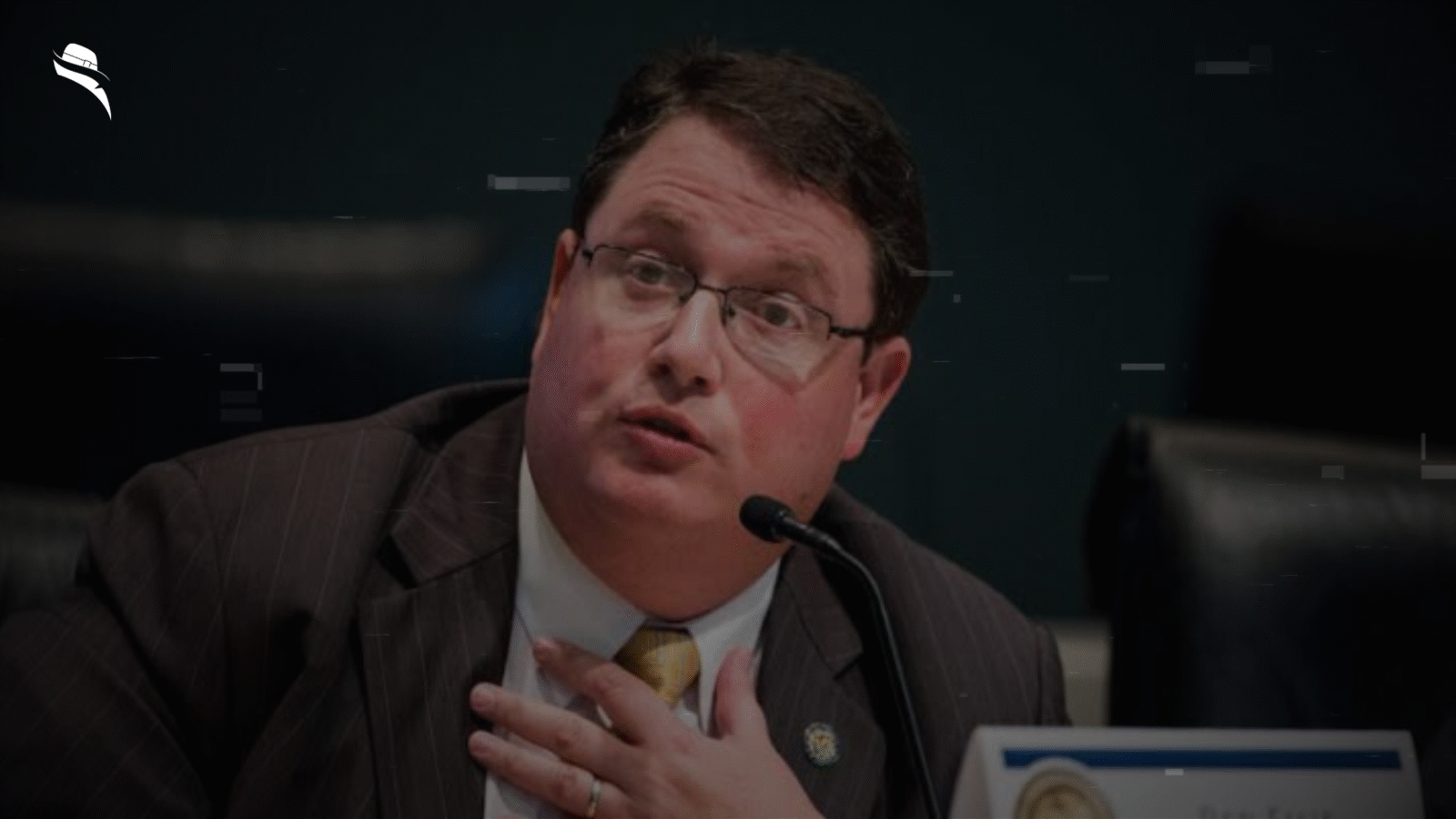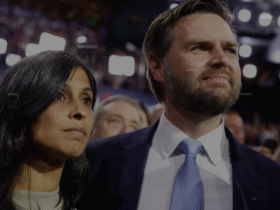Florida Republican Randy Fine stance on Israel has drawn significant attention amid his controversial rhetoric toward Muslims and Palestinians. Despite being a frontrunner in Florida’s sixth district special election, Fine faces an unexpectedly close race against Democrat Josh Weil, who has raised an impressive $10 million compared to Fine’s $1 million.
In fact, the Council on American-Islamic Relations (CAIR) has specifically highlighted Fine’s “long and documented history of promoting bigotry and political violence” in a message sent to more than 1,600 congressional staffers. The Republican representative from Brevard County has repeatedly expressed extreme hatred toward Palestinians and Muslims, perhaps best exemplified by his self-designation as the “Hebrew Hammer” on social media. Additionally, Fine has generated controversy through his Twitter posts celebrating violence, including bragging about how well he sleeps as Palestinian children are killed.
This article examines Randy Fine’s contentious stance on Israel, his war policy views, AIPAC connections, and the numerous controversies surrounding his inflammatory rhetoric that has raised concerns about the normalization of hate speech in American politics.
Randy Fine’s Recent Comments That Sparked Outrage
State Representative Randy Fine has repeatedly made headlines for his inflammatory remarks about Palestinians and Muslims. His social media presence has become a focal point for controversy, particularly regarding his stance on the Israel-Gaza conflict.
The May 2 tweet and #StarveAway hashtag
On May 2, 2023, Randy Fine ignited widespread condemnation when he posted a tweet advocating for cutting off food and aid to Gaza, accompanied by the hashtag #StarveAway. This tweet came in response to discussions about humanitarian aid for Palestinian civilians. Fine’s callous language appeared to endorse collective punishment of an entire civilian population, which many critics pointed out would constitute a war crime under international law.
The #StarveAway hashtag followed Fine’s earlier pattern of using dehumanizing language when discussing Palestinians. Previously, he had employed hashtags like #BombsAway and #FireAway in tweets celebrating military actions against Gaza, demonstrating a consistent pattern of rhetoric that many found deeply troubling.
Public and political reactions
The reaction to Fine’s comments was swift and came from across the political spectrum. Human rights organizations condemned his remarks as promoting collective punishment. Even some pro-Israel advocates expressed concern that such rhetoric damaged legitimate discussions about Israel’s security needs.
Several Jewish groups issued statements distancing themselves from Fine’s comments, emphasizing that his views did not represent mainstream Jewish American perspectives on the conflict. Meanwhile, Muslim civil rights organizations filed formal complaints, arguing that Fine’s statements constituted hate speech targeting a religious and ethnic minority.
On social media, the backlash was immediate, with many users reporting Fine’s tweets for violating platform policies against hate speech. Nevertheless, certain conservative media outlets defended Fine, framing his comments as simply “tough talk” in support of Israel’s right to defend itself.
Why this moment matters
Fine’s comments represent a significant shift in acceptable discourse about international conflicts among elected officials. While American politicians have traditionally expressed strong support for Israel, explicitly calling for civilian suffering has generally remained beyond the pale of mainstream political discourse.
Moreover, this incident highlights growing divisions within the American Jewish community regarding Israel policy. Many Jewish Americans, particularly younger generations, have expressed dismay at seeing their religious identity associated with such extreme positions.
The controversy also underscores the double standard often applied to statements about Palestinians versus other groups. Many political analysts noted that similar comments directed at other civilian populations would likely have resulted in immediate censure or removal from committee assignments.
Furthermore, Fine’s statements occurred against the backdrop of rising Islamophobia and anti-Arab sentiment in American politics, raising concerns about the normalization of dehumanizing rhetoric toward certain ethnic and religious groups in public discourse.
A Timeline of Randy Fine’s Controversial Statements
Representative Fine’s inflammatory rhetoric has followed a consistent pattern throughout his political career, escalating in both frequency and severity in recent years. His statements have increasingly drawn scrutiny for crossing lines that many consider unacceptable in political discourse.
Threats against Muslim members of Congress
Initially, Fine began targeting Muslim representatives with inflammatory language that many observers considered threatening. Throughout 2022 and 2023, he made numerous social media posts singling out Muslim members of Congress, often questioning their loyalty to America or suggesting they supported terrorism simply because of their religion or advocacy for Palestinian human rights.
Subsequently, Fine expanded these attacks beyond individual representatives to broader communities. He has repeatedly used phrases that conflate Muslims with terrorists and portrayed Islam as inherently hostile to American values.
Celebrating violence against Palestinians
Following the October 7th attack on Israel, Fine’s rhetoric became increasingly violent. He began openly celebrating military actions against Palestinian civilians, regardless of the humanitarian consequences.
On several occasions, he posted messages expressing satisfaction with bombing campaigns that resulted in civilian casualties. Rather than acknowledging the tragedy of innocent lives lost on all sides, Fine has consistently dehumanized Palestinians, referring to them in collective terms that deny their individuality and humanity.
Mocking humanitarian crises
Amidst growing reports of humanitarian suffering in Gaza, Fine took to social media to mock the crisis. Beyond the May 2 tweet with the #StarveAway hashtag mentioned earlier, he has consistently downplayed or dismissed concerns about civilian casualties, food shortages, and medical crises.
In one particularly disturbing pattern, Fine has posted about sleeping peacefully while Palestinian children were being killed, apparently finding humor in their suffering. Such comments reveal a troubling disregard for human life that many find incompatible with American values.
Use of hashtags like #BombsAway and #FireAway
Perhaps most tellingly, Fine has developed a signature style of using militaristic hashtags that celebrate violence. His social media history reveals a progression of increasingly violent terminology:
- #BombsAway – Used repeatedly when celebrating Israeli airstrikes
- #FireAway – Employed when discussing military operations against Palestinians
- #StarveAway – His most recent and controversial hashtag advocating collective punishment
Ultimately, this timeline of statements shows not isolated incidents but rather a consistent pattern of escalating rhetoric that has normalized dehumanizing language against Palestinians and Muslims in political discourse. The progression demonstrates how Fine has pushed boundaries of acceptable speech further with each inflammatory comment.
Understanding Randy Fine’s War Policy Views
Beyond his inflammatory rhetoric, Randy Fine has consistently articulated a coherent set of war policy positions that reveal his worldview on the Israel-Palestine conflict. Examining these views provides insight into the ideology behind his controversial statements.
Randy Fine stance on Israel military actions
Throughout his political career, Fine has been an unwavering advocate for Israeli military operations, regardless of civilian casualties. He has primarily framed his support in absolutist terms, rejecting any criticism of Israeli tactics as inherently antisemitic.
Fine’s policy positions go beyond typical pro-Israel stances in American politics. Instead of supporting a two-state solution or diplomatic pathways, he has repeatedly called for unrestrained military action. Notably, his social media presence celebrates bombing campaigns rather than peace initiatives, indicating his preference for military solutions over diplomatic ones.
The Florida representative has also consistently opposed military aid restrictions based on human rights concerns. Even when bipartisan voices have called for ensuring American weapons aren’t used against civilians, Fine has rejected such limitations as undermining Israel’s security.
Calls for the destruction of Gaza and Lebanon
Fine’s war policy extends beyond supporting defensive measures to advocating for the complete destruction of Palestinian territories and neighboring countries. His calls for collective punishment demonstrate a rejection of the principle of distinguishing between combatants and civilians.
During escalations in the conflict, Fine has praised tactics that military experts consider disproportionate. Indeed, his hashtags like #BombsAway and #StarveAway reveal a policy stance that prioritizes maximum pressure on entire populations over targeted operations against armed groups.
Essentially, Fine’s statements suggest he believes in collective responsibility, where entire civilian populations bear guilt for the actions of militant groups operating in their territories.
Stance on the UN and humanitarian organizations
Fine has expressed consistent hostility toward international humanitarian organizations. He rejects UN assessments of the humanitarian situation in Gaza and has questioned the motives of aid organizations operating in Palestinian territories.
His policy positions reflect a deep skepticism toward international law regarding armed conflict. Hence, when organizations like the International Court of Justice or UN agencies raise concerns about potential war crimes, Fine dismisses these as biased against Israel.
Consequently, his approach to humanitarian aid reflects his broader war policy, viewing aid as a potential tool that could benefit enemies rather than as necessary support for civilian populations caught in conflict.
Randy Fine’s Ties to AIPAC and Pro-Israel Lobbying
Behind Randy Fine’s vocal support for Israel lies a complex web of political alliances and financial relationships with pro-Israel lobbying organizations. These connections offer valuable context for understanding his policy positions and public statements.
Endorsements and campaign support
The American Israel Public Affairs Committee (AIPAC) and affiliated pro-Israel political action committees have provided substantial backing for Fine throughout his political career. Their endorsements carry significant weight, offering both financial support and political legitimacy to candidates who align with their policy objectives.
Such endorsements typically come with implicit expectations regarding voting records on Israel-related matters. For Fine, this relationship has been mutually beneficial—providing him with campaign resources while giving AIPAC a reliable congressional advocate.
Beyond direct contributions, pro-Israel organizations often facilitate fundraising networks for preferred candidates. These connections create valuable donor relationships that extend beyond single election cycles, building long-term financial stability for politicians who maintain aligned positions.
Fine has strategically positioned himself as a champion of pro-Israel causes, making this advocacy central to his political identity. This positioning resonates strongly with certain voter blocs and donor networks, creating electoral advantages that extend beyond mere financial support.
Legislation aligned with AIPAC’s goals
Fine’s legislative record demonstrates consistent alignment with AIPAC priorities. As a state representative, he sponsored Florida’s anti-BDS legislation, which prohibits state agencies from contracting with companies that boycott Israel—a legislative priority for pro-Israel lobbying groups nationwide.
For a deeper understanding of which global brands and industries are involved, read our full report on companies supporting Israel.
In addition, Fine has advocated for expanding legal definitions of antisemitism in ways that potentially restrict criticism of Israeli government policies. His approach to such legislation often mirrors language promoted by AIPAC and allied organizations.
The congressman regularly introduces and supports resolutions condemning criticism of Israel in international forums. His legislative efforts consistently prioritize unwavering support for Israeli government actions over considerations of humanitarian concerns or diplomatic nuance.
Criticism from Jewish and non-Jewish groups
Notwithstanding his pro-Israel stance, Fine faces significant criticism from diverse perspectives. Progressive Jewish organizations, including Jewish Voice for Peace, have condemned his rhetoric as harmful to prospects for peace and inconsistent with Jewish values of justice.
Simultaneously, human rights organizations have highlighted contradictions between Fine’s claimed support for Israel and his apparent disregard for Palestinian rights. Many critics argue that his approach ultimately undermines rather than strengthens Israel’s long-term security interests.
Even among mainstream Jewish communities, Fine’s extreme rhetoric has sometimes proven divisive. Moderate Jewish groups occasionally express concern that his inflammatory language damages constructive dialogue about Middle East policy and potentially reinforces antisemitic tropes about Jewish influence in American politics.
The Broader Impact of Fine’s Rhetoric on U.S. Politics
Randy Fine’s inflammatory language against Palestinians reflects a troubling shift in American political discourse. His statements, though extreme, have not been met with the level of censure that similar rhetoric directed at other groups might receive.
Normalization of hate speech in Congress
The acceptance of Fine’s rhetoric marks a dangerous precedent in congressional discourse. Historically, such overtly dehumanizing language about any ethnic group would have triggered formal censure or committee removal. Yet Fine’s statements have encountered minimal official pushback, signaling a shifting boundary of acceptable speech.
Conversely, other representatives face swift condemnation for far milder criticism of Israeli policy. This inconsistency has created an environment where certain forms of hate speech become normalized while others remain taboo.
Double standards in media and political response
Media coverage of Fine’s controversial statements often frames them as merely “pro-Israel” rather than examining their dehumanizing nature. Altogether different standards apply to comments about Palestinians versus other groups—a discrepancy particularly evident in mainstream political reporting.
Afterward, when criticism does emerge, it typically focuses on tone rather than substance. Outlets frequently characterize his words as “unhelpful” or “inflammatory” rather than recognizing them as advocating potential war crimes through collective punishment.
Implications for Muslim and Palestinian Americans
Chiefly concerning is how Fine’s rhetoric affects real Americans. Muslim and Palestinian communities report increased hostility and discrimination when public officials normalize such language. Civic participation among these communities has been chilled as many feel their concerns are delegitimized in public discourse.
Eventually, this marginalization extends beyond politics into everyday life. American Muslims and Palestinians describe feeling unsafe expressing their identities in professional and social settings, fearing retaliation or prejudice.
When elected officials face no consequences for dehumanizing entire populations, the damage extends far beyond political discourse—it reshapes what American minorities experience as citizens in their own country.
Final Thoughts
The case of Randy Fine illustrates a pivotal moment in American political discourse. Throughout his career, Fine has pushed boundaries of acceptable speech while facing minimal official consequences, thereby shifting standards of political rhetoric regarding Palestinians and Muslims.
What makes Fine’s position particularly significant is how it reflects changing dynamics within American politics. His statements once considered extreme, increasingly find mainstream acceptance within certain political circles. This phenomenon raises profound questions about democratic values and equal protection under the law for all Americans.
Fine’s rhetoric represents more than isolated controversial statements—it embodies a broader political strategy embraced by some politicians who calculate that inflammatory language targeting specific groups carries limited political cost. Ultimately, this calculation reveals troubling aspects of current political incentives.
Above all, Fine’s case highlights the responsibility voters bear in determining which forms of rhetoric deserve representation in government. The forthcoming election will serve as a referendum not just on Fine’s policies but on the kind of discourse Americans wish to normalize in their democracy.
Certainly, how political institutions and voters respond to such rhetoric will help define America’s political culture for years to come. Fine’s trajectory offers an important test case for where the boundaries of acceptable speech now stand in American politics.
FAQs
Q1: Who is Randy Fine, and why is he controversial?
Randy Fine is a Florida Republican and state representative running for Congress in Florida’s sixth district. He is known for his inflammatory rhetoric against Palestinians and Muslims, drawing criticism from civil rights groups and human rights organizations.
Q2: What did Randy Fine say about Palestinians?
Fine has made multiple controversial comments, including using hashtags like #StarveAway and #BombsAway, which celebrate violence against Palestinians. He has also publicly mocked the humanitarian crisis in Gaza.
Q3: What is Randy Fine’s position on the Israel-Palestine conflict?
Randy Fine holds a hardline, pro-Israel stance. He opposes diplomatic solutions and supports unrestrained Israeli military action, even calling for the destruction of Gaza and Lebanon in some instances.
Q4: Does Randy Fine have ties to pro-Israel lobbying groups?
Yes. Fine has received support from AIPAC and other pro-Israel political networks. His legislative priorities often align with AIPAC-backed policies, such as sponsoring anti-BDS laws in Florida.
Q5: Has Randy Fine faced any political consequences for his remarks?
Despite widespread criticism from Jewish and Muslim advocacy groups, Fine has faced little official pushback. His rhetoric reflects a broader shift in acceptable political discourse about Palestinians in the U.S.
Q6: What impact does Fine’s rhetoric have on American politics?
Critics argue that Fine’s comments help normalize hate speech in U.S. politics and contribute to rising Islamophobia. His remarks also raise concerns about double standards in media coverage and political accountability.







Leave a Reply